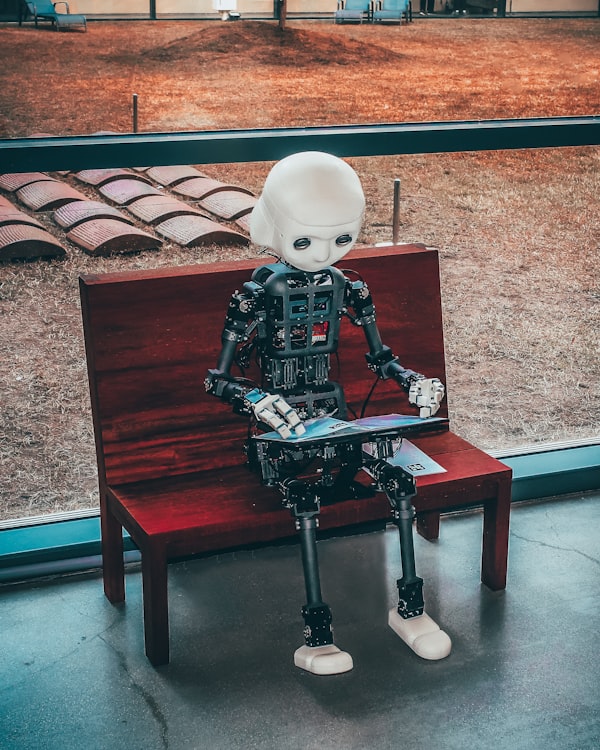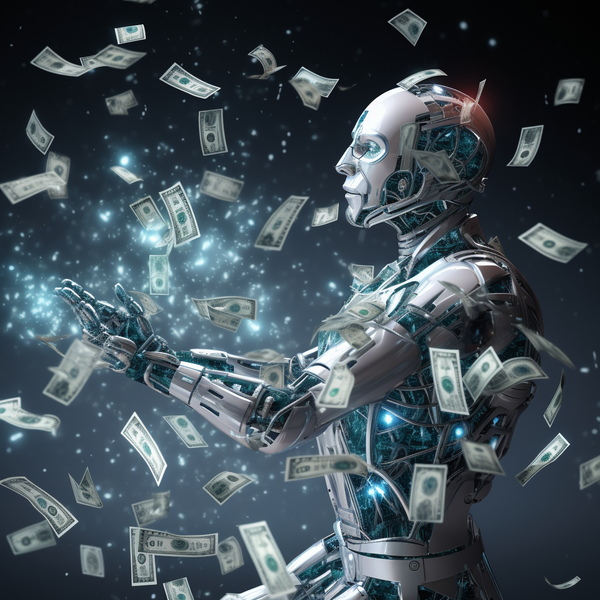Intro
Have you ever been curious about how Artificial Intelligence (AI) is being used to create dynamic music, both by professionals and hobbyists?
AI music generators are enabling a broad range of creativity never before seen in sound production. Imagine having access to a vast library of instrument sounds and other musical elements that can be combined for near-endless possibilities.
Thanks to advances in machine learning, today's AI technology is enabling audio enthusiasts everywhere to explore its capacities with more precise results than ever before.
In this blog post, we’ll take a look at various types of AI music generators and discuss some ways they are being used creatively now and in the future. So strap on your headphones as we unlock new possibilities within the world of AI & Music.
How We Choose
When it comes to selecting an AI music generator, there are a few things we should consider. First, what type of sound do you want to generate? Do you have any specific instruments in mind or are you open to exploring the capabilities of any machine? Secondly, what level of complexity do you need for your composition? From complex orchestral arrangements to experimental soundscapes, AI music generators can be used to create music in a variety of musical styles. Finally, is there a budget? Some AI music generators are free while others require you to pay for access.
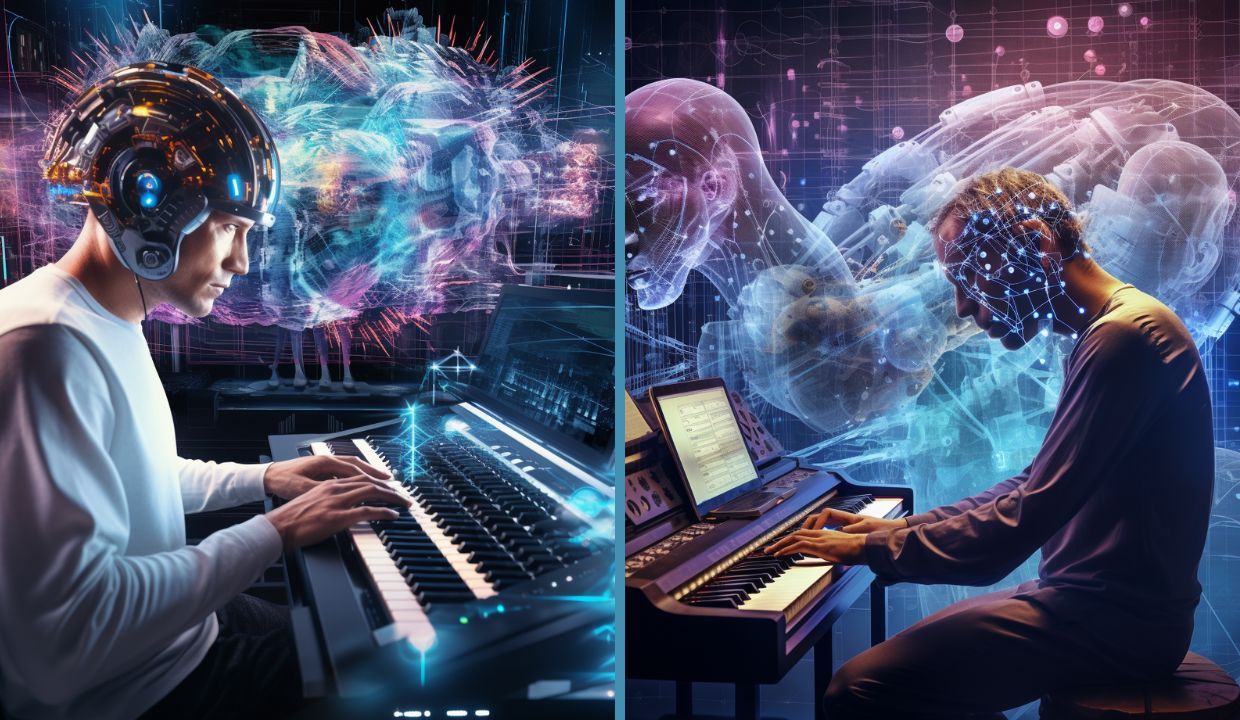
1. Clear Results
Create Complex Pieces of Music Quickly!
Why We Love It:
The beauty of AI music generators is that they can create unique and complex pieces of music in a relatively short amount of time. With the right settings, you can generate clear results from ai generated songs without having to spend hours perfecting individual elements.
Not only does this save time for producers, but it also allows them to experiment with sounds that may have previously been too difficult or expensive to create. For instance, music producers can use AI to generate complex textures and chord progressions that would otherwise require multiple instruments or software programs.
What You Should Know:
When using AI music generators, it’s important to understand the settings and parameters that are available. Some programs allow you to customize the sound or mix, while others may be limited to a particular type of sound or genre.
Additionally, it’s important to know what type of output file format your AI music generator produces. Many programs will export files in .wav or other audio file formats, making it easy to share your creations with friends and colleagues.
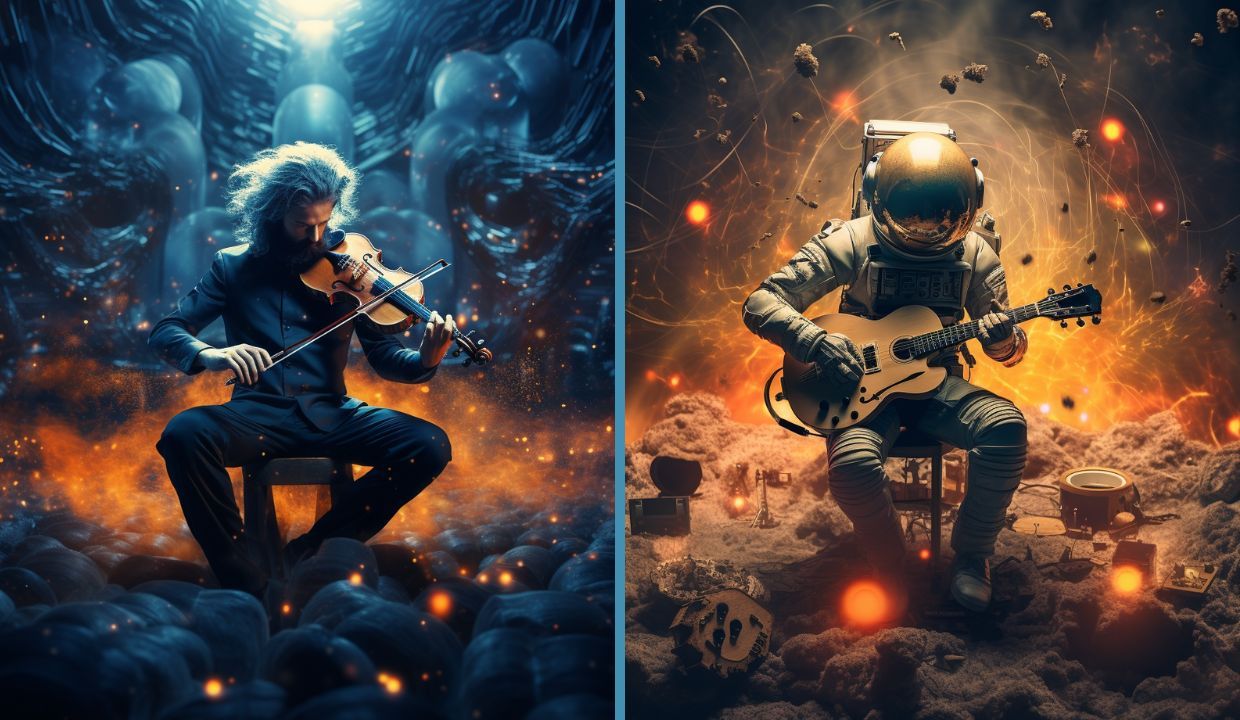
2. Adaptive Generative Music
Use AI to Generate Unique Versions of Comtemporary Tunes!
Why We Love It:
The latest developments in AI technology have enabled producers to create adaptive generative music. This type of AI song that uses machine learning algorithms that can analyze existing music, identify patterns and generate new music in the same style.
For example, you can use AI to generate a unique version of a jazz tune that still sounds like it belongs in the genre, but with its own distinct flavor.
What You Should Know:
The key to creating adaptive generative music is to use an AI system that has been trained on a large amount of data. This ensures that the machine can accurately identify patterns and generate new pieces of music in a specific genre.
Additionally, the AI should be able to recognize different instruments and styles so that it can create pieces with ai generated music with multiple layers and textures. This allows for an even greater level of creativity and experimentation.
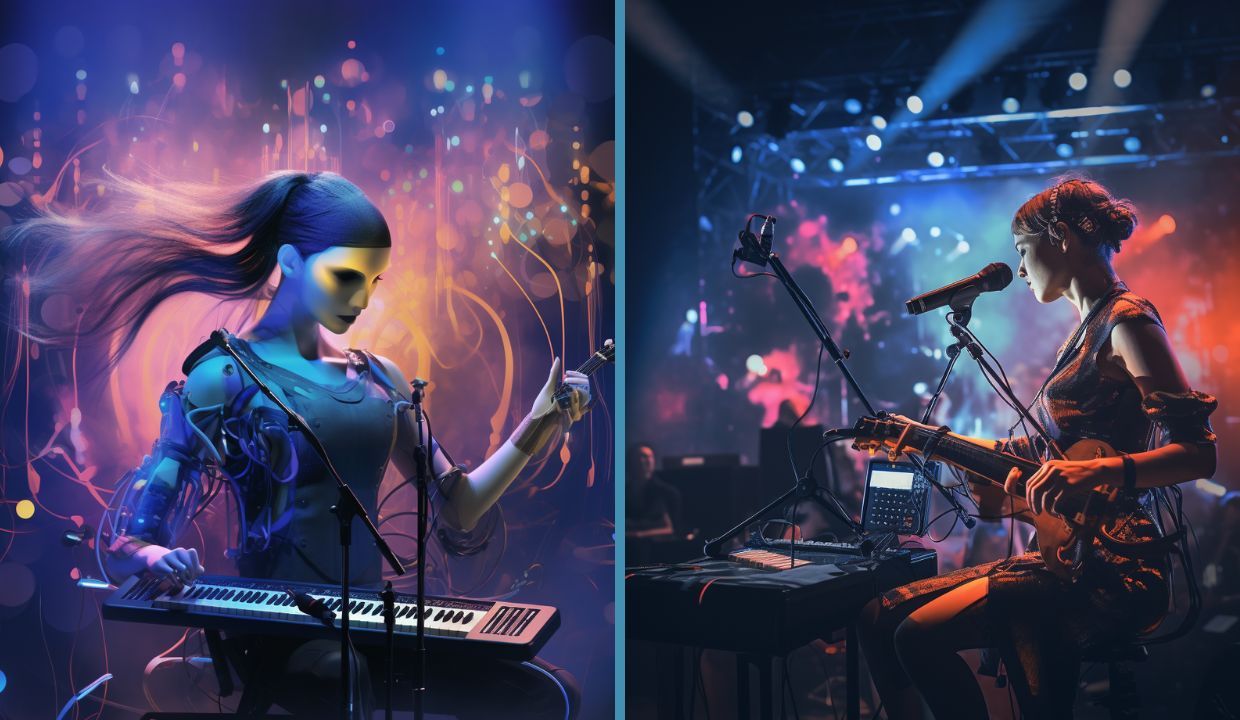
3. Live Performance AI Music Generators
Create Music Tracks Fast & Create Improvisational Sessions!
Why We Love It:
Live performance AI music generators let musicians perform music in real time using AI-generated sounds. This technology is being used by DJs, producers and live performers to create unique pieces of music and songs that would otherwise be difficult or impossible to create.
Live performance AI music free ai music generators can also be used to make music tracks fast create improvisational sessions, allowing musicians to experiment with sound and texture in a way that would not be possible with traditional instruments or software programs.
What You Should Know:
When using live performance AI music generators, it’s important to understand the capabilities of the technology. Some AI systems are limited to generating certain types of sounds, while others may be able to generate a wider variety of sounds.
Also, make sure you understand the parameters of the AI and how they affect the sound it produces. This will help you get the most out of your live performance.
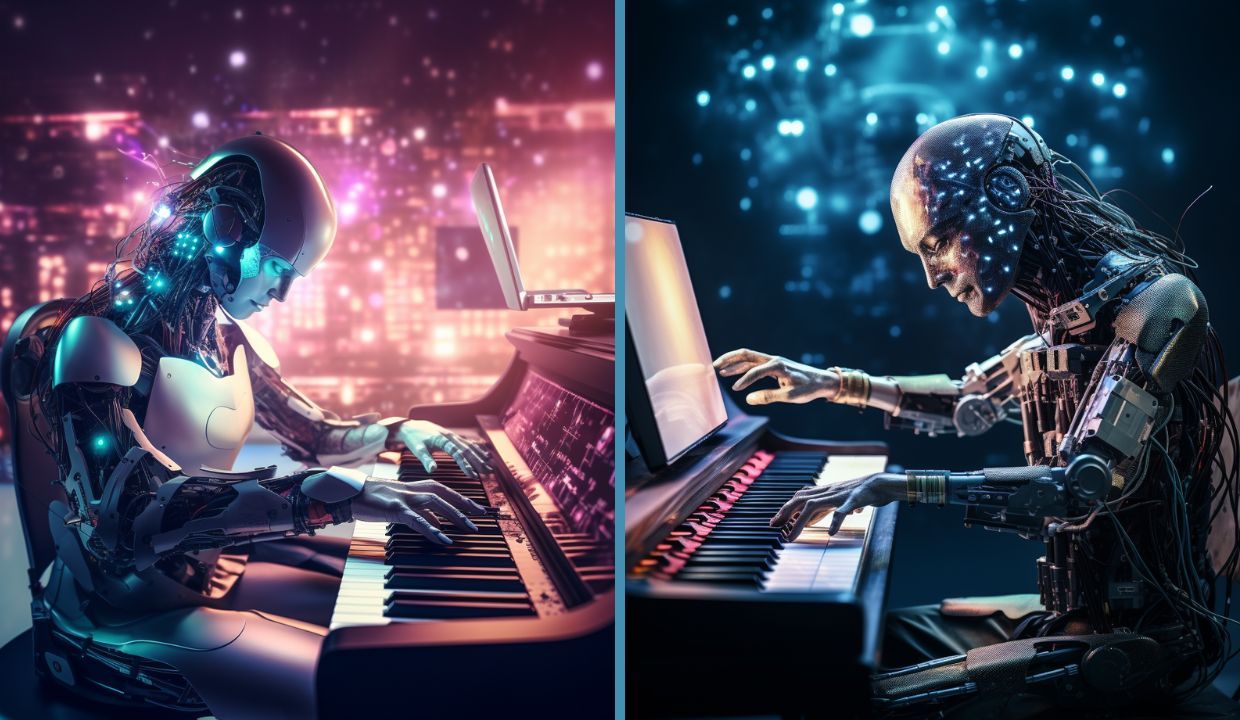
4. AI-Assisted Music Making
Analyze Existing Music-Suggest New Ideas!
Why We Love It:
AI technology can be used to assist in the creation of new music tracks. For example, AI can be used to analyze existing music and suggest new ideas or provide feedback on a piece of work. This can be especially useful when creating complex compositions or working with multiple layers and instruments.
AI-assisted music making can also be used to help with the mixing and mastering process. AI algorithms can analyze existing music tracks, and suggest improvements or identify areas that need to be adjusted.
What You Should Know:
When working with AI-assisted music making tools, it’s important to understand the capabilities of the AI and how they affect the output. Additionally, make sure you understand any limitations or parameters that may be in place. This will help ensure that you get the most out of your AI music tools.
AI-assisted music making can also be used to generate unique soundscapes or moods for a track. For example, an AI system can analyze a piece of music studio quality music tailored and suggest sounds or textures that would complement the royalty free tracks. This can help producers create dynamic, layered compositions that are unique and interesting.
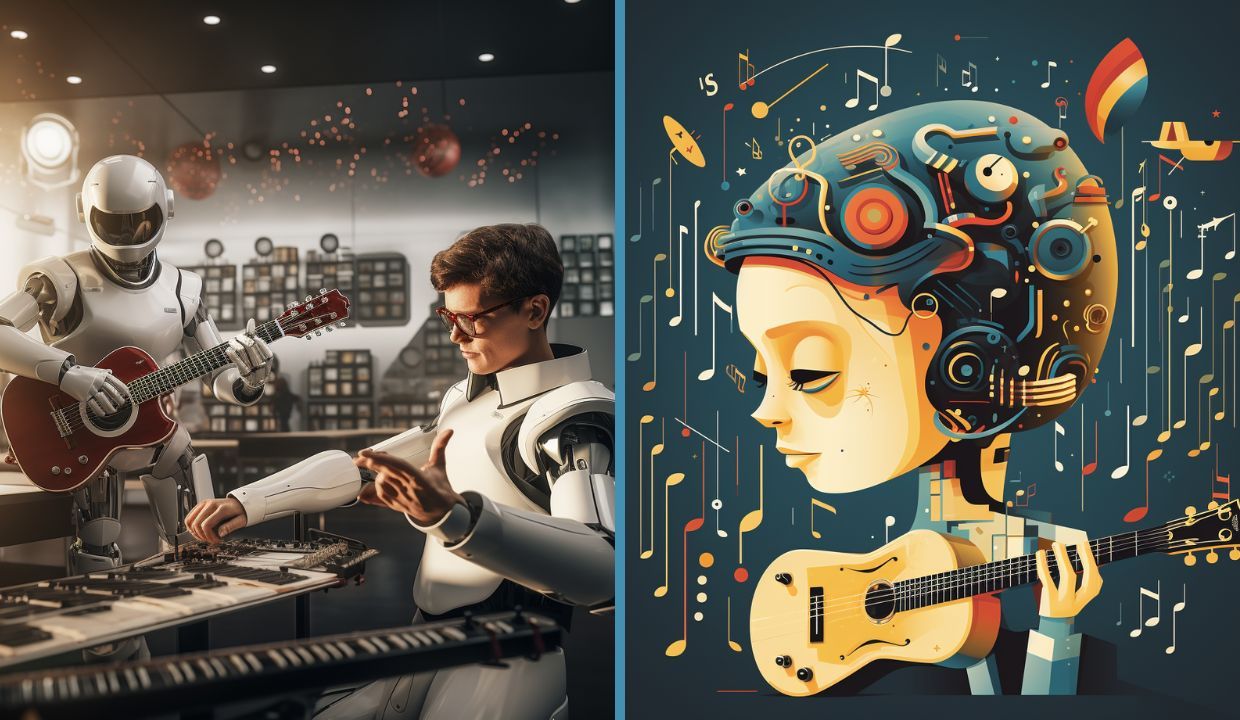
5. AI-Based Music Education
Personalize Lesson Plans for Individual Students!
Why We Love It:
AI technology can also be used for educational purposes. For example, AI-based royalty free music education can help students learn the fundamentals of music theory and composition in a more interactive way. With AI-powered software programs, students can get instant feedback on their progress without having to wait for an instructor or tutor.
Additionally, AI-based music education can be used to generate personalized lesson plans for each student. This can help ensure that students are learning the material that is most relevant and appropriate for their skill level and interests.
What You Should Know:
When using AI-based music education, it’s important to understand the capabilities of the AI and how they affect the output. Additionally, make sure you understand any limitations or parameters that may be in place. This will help ensure that students are getting the most out of their learning experience.
It’s also important to remember that AI can’t replace a human teacher. While AI-based music education can be an effective supplement to traditional instruction, it’s important to remember that an experienced teacher can provide personalized feedback and guidance that AI cannot.
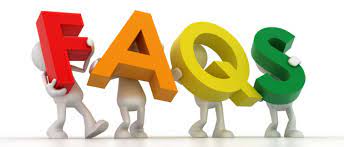
FAQs
1. Should I use AI music generators for my next project?
The decision to use AI music generators is up to you. If you’re looking for a way to explore new possibilities or experiment with unique sounds, then using an AI-based program may be a great choice. However, if you’re looking for a more precise and professional sound, then traditional instruments and software may be a better choice.
2. What is the best way to use AI music generators?
The best way to use AI music generators depends on what type of output you’re looking for. If you’re looking to create adaptive royalty free background music, then it’s important to train your AI system on a large amount of data. If you’re looking to use AI for live performance, then make sure you understand the capabilities and parameters of your system so that you can get the most out of it.
3. Can I use AI music generators to teach my students?
Yes, AI technology can be used for educational purposes. AI-based music education can help students learn the fundamentals of music theory and composition in a more interactive way. It can also generate personalized lesson plans for each student, ensuring that they are learning the material that is most relevant and appropriate for their skill level and interests. However, it’s important to remember that an experienced teacher can provide personalized feedback and guidance that AI cannot.
4. What are the benefits of AI-generated music?
One of the most significant benefits of AI in music production is the ability to quickly generate new ideas and variations. As any musician can attest, coming up with fresh ideas can be a time-consuming and sometimes frustrating process
5. What is the best AI music generator? Best AI Music Generators (July 2023)
To name just a few:
- Amper Music. Topping our list of best AI music generators is Amper Music, which is one of the easiest AI music generators to use, making it a perfect choice for those looking to get started with AI-generated music. ...
- AIVA. ...
- Soundful. ...
- Ecrett Music. ...
- Soundraw. ...
- Boomy. ...
- Loudly. ...
- OpenAI – MuseNet.
6. Can you use AI-generated music?
AI music generators can be used to create new musical pieces, remix existing songs, or generate accompaniment for musicians. They can also be used to create soundtracks for movies, video games, and other media.
7. How do AI music generators work?
Much like AI image generators and text-based AI tools, AI music generators rely on deep learning—a machine learning method in which computers process data in a way that mimics the human mind—to create an output.
8. What are the challenges of AI music?
As AI-generated music becomes more advanced, it may become increasingly difficult to distinguish between music created by humans and music created by machines. This could lead to issues of deception and manipulation, as well as questions about the value and authenticity of music in general.
9. How are people using AI to make music?
How Does Ai-Generated Music Work? Most platforms work by using deep machine learning to analyze large amounts of data—such as music tracks, melodies or chords—process them and then feed the data to the AI. The AI is then trained on this data and uses it to create music.
10. What is an example of an AI generated song?
A significant and controversial breakthrough in AI generated music revolves around its remarkable ability to emulate popular artists. One noteworthy example is the track “Heart On My Sleeve,” which sparked extensive discussions due to its uncanny resemblance to a collaboration between Drake and The Weeknd.
11. Is AI generated music currently copyrightable?
A new composition that is composed with an AI tool or sung using an AI-generated voice may not incorporate any "substantially similar" element or "substantial part" of any previous work that is actually protected by copyright.
12. How do artists feel about AI music?
Now AI is providing musicians with another kind of collaborator – in bot-form. But as thrilling as this might sound to some, many musicians and producers are outraged by the idea of AI being used in music creation and terrified that these developments might render them as obsolete as a VHS tape at a VR convention.
13. How will AI impact the future of music?
Additionally, AI music generators can also help music producers to create new and unique music styles. The machine learning algorithms used by these programs are constantly learning and evolving, allowing them to generate music that is both innovative and creative.
14. Is AI music the future?
Yet AI's most groundbreaking role will likely be as a new medium that will shift music into more adaptive, responsive formats. Technology has always played an important part in transforming how we produce, record, and consume music.
15. How will AI generated art affect artists?
As AI-generated art becomes more prevalent, it could lead to a decrease in demand for traditional art, causing artists to lose income. Additionally, the lower cost of AI-generated art could lead to a decline in the perceived value of traditional art, further affecting artists' livelihoods.
Conclusion
AI music generators are exciting tools for musicians of all genres. They provide a glimpse of the future of music production and create a space where possibilities are endless and creative doors open.
With AI, we can explore the boundaries of music composition and emulate new ideas that challenge what musicians have traditionally done, creating unique soundscapes.
From crafting full tracks to applying pitch-correction, AI offers an entirely new palette to designers that they haven’t had access to before.
Your Friend,
Wade


